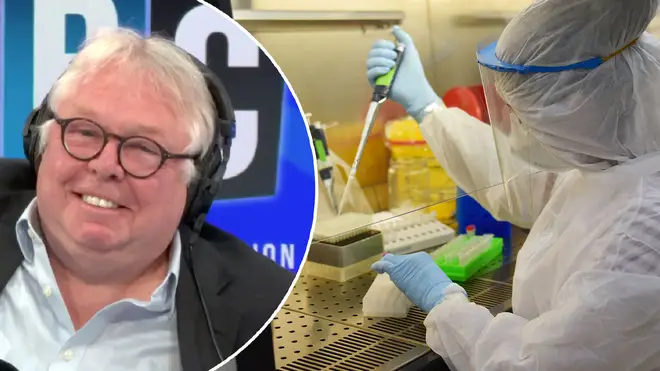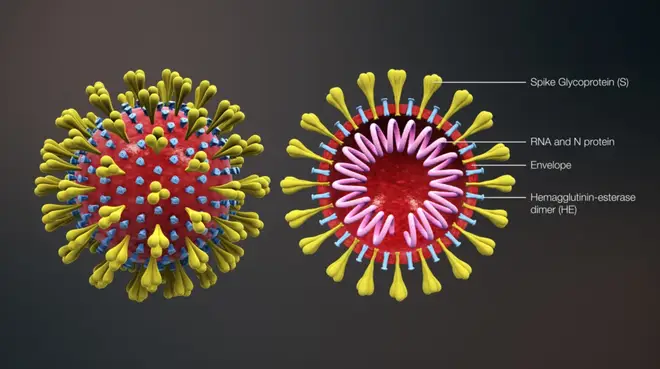
Ben Kentish 10pm - 1am
22 April 2020, 08:25 | Updated: 22 April 2020, 10:13

Professor behind coronavirus vaccine reveals what testing will mean
The professor behind one of the UK's first human trials for a coronavirus vaccine told Nick Ferrari how it will work and when a vaccine will be available.
Health Secretary Matt Hancock announced yesterday that the first human trials of coronavirus vaccine from Oxford University and Imperial College will start on Thursday.
Researchers are trialling the two vaccines against Covid-19 in the hope of bringing them forward to manufacturing as soon as possible.
Nick Ferrari spoke to Dr Katrina Pollock, the principal investigator for the COVID-19 vaccine trials at Imperial College London, to find out exactly what's going to happen with the trials.
"This is the start of the first of the clinical trials in the UK. This is the beginning of testing one of two candidate vaccines in human trials.
"Work on the vaccine started very early in the year. Within the first couple of weeks of January, scientists were able to sequence the virus in China, which means that we were able to understand it very quickly.
"From that moment on, work to create a candidate vaccine moved forward at great pace."

"There are a number of criteria that people need to fulfil to be eligible to be involved in this early stage vaccine trial. They are usually quite strict so we can see understand the vaccine is performing.
"As we understand the vaccine and the responses, then we move to larger phase two or phase three trials where we include more people. Ultimately, what we want is a vaccine that is going to protect people from this infection, especially the vulnerable and the elderly."
The participants they are looking for need to be:
- adults aged 18-55
- in good health
- have not tested positive for Covid-19
- is not pregnant
- has not taken part in previous adenoviral vaccine trials
This is a multi-site trial, which means that if you want to volunteer, you will need to live near one of the centres, which include Bristol, Southampton, Thames Valley and Greater London.
"These early trials will last up to one year. But the early part of the trials, we'll get data coming through all the time.
"It's normal for us to follow up with volunteers who have been in the trial for quite a long time afterwards, but that doesn't mean we won't get data coming through right from the beginning."
READ MORE: How long does coronavirus live on surfaces?

"I'd like to say as soon as possible - there is a great need for this vaccine.
"We're looking at a timescale of months while we trial this vaccine. As we come towards the end of this first trial of the vaccine, we'll be able to say far more clearly when that's going to be.
"We're pushing ahead really quickly so we have some answers on how these vaccines are behaving by the autumn.
"Having a product available by the autumn will be ambitious. We will know more after we start these first trials."
Scaling up manufacturing and distribution are going to be key questions when we have those vaccine candidates available.
"As well as trialling these two vaccines in the UK, we have to look at how they are going to be manufactured and distributed and also at what cost. That is part of this work.
"There is a global effort to deliver it, so I would be confident we can do this when the time comes."
Listen & subscribe: Global Player | Apple Podcasts | Google Podcasts | Spotify
"In terms of ownership and distribution, those are discussions that need to be taken forward at the manufacturing stage.
"Initially, the vaccine project that we're working on is sponsored by the University of Oxford."
At this point, it's quite early to understand that. It's possible that the virus could circulate in the community and we'd need to look at how to protect people from infection in the long term.
That will be a question for research going forward over the next few years.

